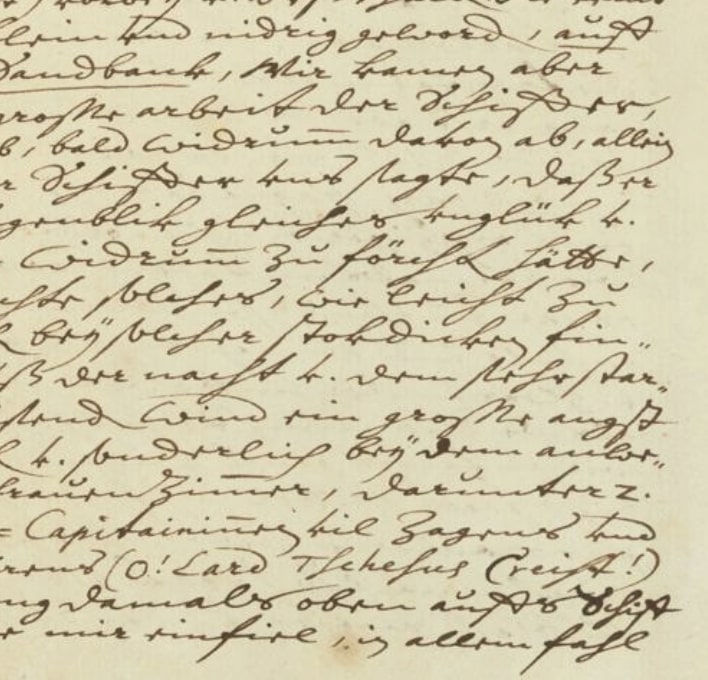O! Lard Tschesus Creist!

One key challenge that early modern travellers had to grapple with were language barriers. It was unusual for English travellers to know any German or for Swiss travellers to know any English. When Thomas Platter had lunch with the Mayor of London he did not understand a single word: "dann wier nichts verstunden, weder waß sie auf latein, frantzösisch oder spangisch mitt uns redeten" (676 recto).
Especially in the seventeenth century, Latin was oftentimes the only means of communication, so when Thomas Coryat got lost near Baden, he tried to ask Swiss people for help but "for by reason that I was ignorant of the Dutch language, those that met me by the way could not understand my speeches, and so gave me no certaine directions to finde out the place" (398). It was only once he met a scholar who spoke Latin that he found his way back. Albrecht von Haller had a similar experience when trying to reach London: "Hierwar gut Rath theuer. Niemand wolte mich verstehn, ich konte weder Kutsche noch Pferde kriegen" (16). Again, it is only once an officer takes mercy on him and helps him that he can procure a coach ride to London. Haller concludes "Hier sahe ich, wie schlimm eß ist, ohne die Spraache zu können, durch ein Land zu reisen und wie wenig man sich hier aufs Franzö[si]sche verlaßen kann" (16) documenting how distressing it could be to travel alone in a foreign country, but also how French could potentially be useful when trying to communicate with lay-people.
One way to relate their experiences in their travel accounts was to just write down exactly what they heard, both when it came to place names as well as phrases. For example, Hans Kaspar Zoller wrote down "Cronnewitz" for Greenwich and "Sainctduische" for Sandwich (4 verso, 5 verso). John Raymond on the other hand recognized "the first words wee heard, wee even understood Com Heyn Gotsname, and Got tanke heir" (250) and Platter likewise understood when Queen Elizabeth said: "God bles mi piple! dass ist: Gott segne mein volck" (748 verso). Thus, when Rudolf Bucher experienced a terrifying ship journey through a storm, he wrote down exactly what he heard the women lament: "O! Lard Tschesus Creist!" (fol. 45 recto).
Stefanie HeegSources
Bucher, Rudolf. Academische Reißbeschreibung, 1696-1698. UB Basel, VB Mscr F 15.
Coryate, Thomas. Coryats Crudities. London, 1611.
Haller, Albrecht von. Albrecht Hallers Tagebuch seiner Studienreise nach London, Paris, Strassburg und Basel: 1727-1728. Edited by Erich Hintzsche, H. Huber, 1968.
Platter, Thomas. Beschreibung der Reisen durch Frankreich, Spanien, England und die Niederlande, 1595-1600. 1604/1605. UB Basel, A lambda V 7/8.
Zoller, Hans Kaspar. Reißbuch für tütsche und wälltsche Land, Engelland, hispangnie insel. ZB Zürich, Ms S 346 Blatt 1-86.